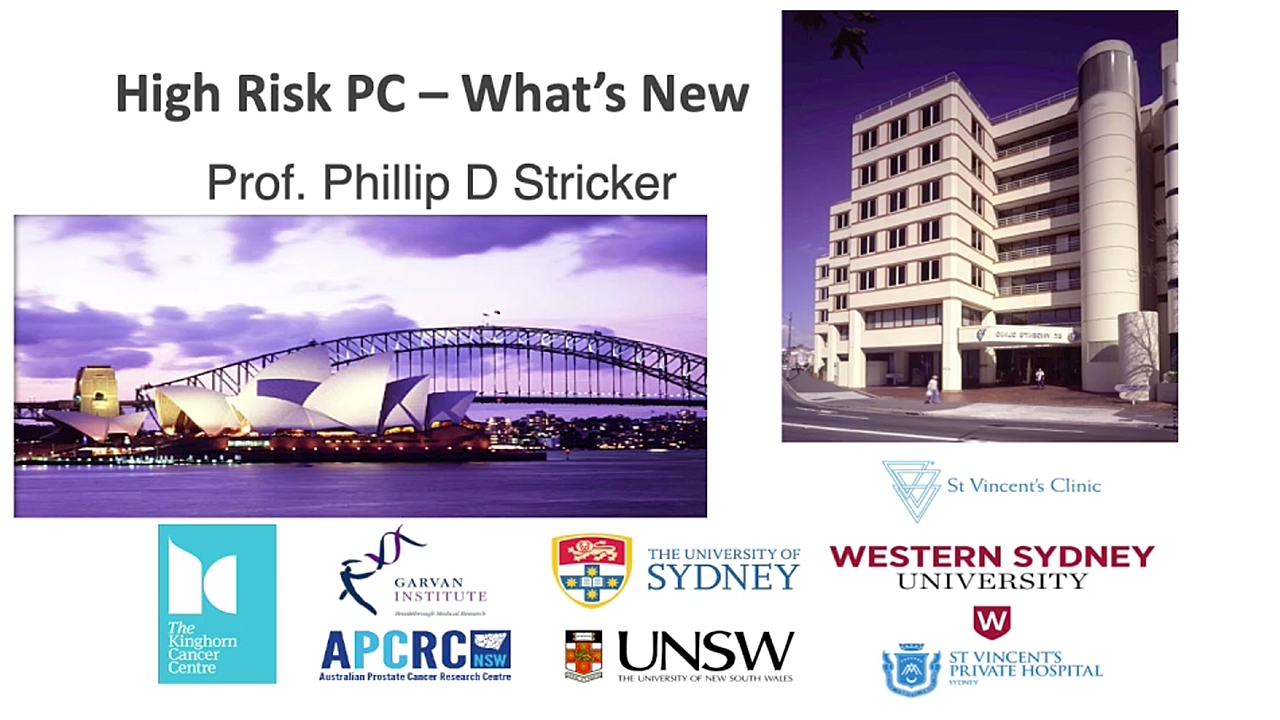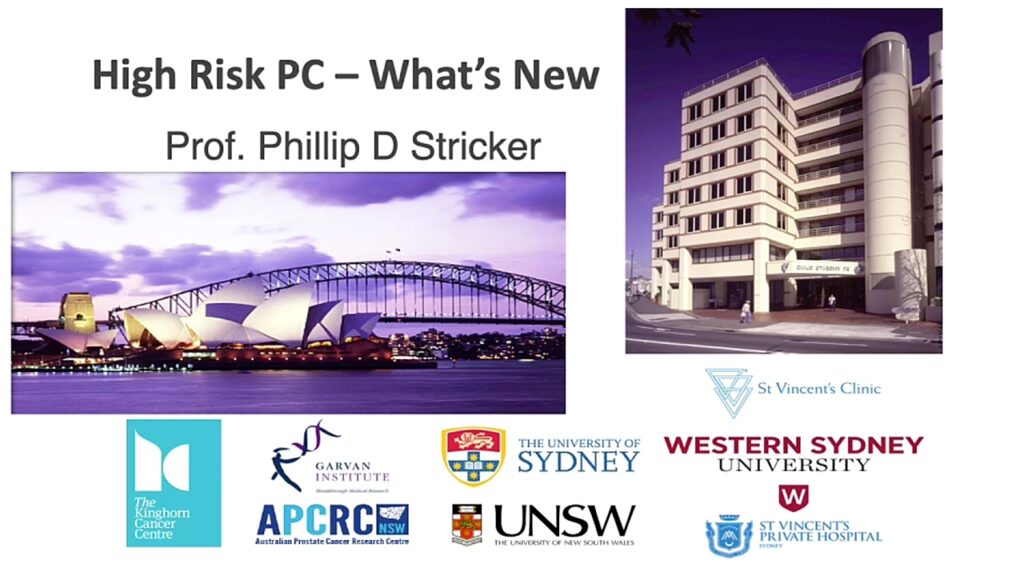
Professor Stricker was the keynote speaker at the Australian Section of the World Society of Robotic Surgeons virtual conference recently. He was invited to talk on preserving sexual function after robotic surgery as well as the management of high-risk prostate cancer.
Professor Stricker was part of an Asia Pacific Group of Experts discussing potency preservation after Robotic Prostatectomy. He described his technique of nerve sparing in robotic surgery and oiunted out the importance of not only preserving nerve fibres but also vascular structures. The discussion focussed on how the degree of nerve preservation is dictated by the extent of the cancer, the age of the patient and, of course, the patient’s potency preoperatively. Professor Stricker mentioned how he continues to see small incremental changes in his robotic surgery outcomes. Despite having completed over 2000 robotic surgeries, Stricker was adamant that the learning curve never ends.
Click here for the PDF of this presentation.
Click here for the video of this presentation.
Professor Stricker was also invited to a give a keynote address on high-risk prostate cancer at the Australian Section of Society of Robotic Surgery. During this presentation, he made particular mention of the increasing role of PSMA PET scanning and described one of his most recent projects – the DETECT trial which is using a Geiger counter to help detect cancer which has spread to microscopic nodal disease and outside of the prostate during the operation of robotic surgery. Professor Stricker feels that the Geiger counter, which is being evaluated both at his centre and at the Martini Klinik in Germany and the National Cancer Institute in Netherlands where it was developed, will have an increasing role in complex patients with high-risk prostate cancer to more completely eradicate the cancer. He demonstrated some case studies where very challenging lymph gland secondaries were able to be removed. At this stage however he cautioned that this is still an experimental technology.

